Environmental Integration on ...
Online Conference
10 Apr 2025 / 12 Apr 2025 read more


School of Architecture and Urban Planning, Chongqing University, China.
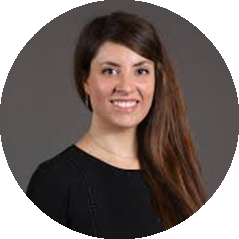
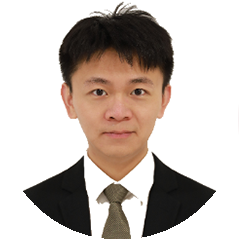
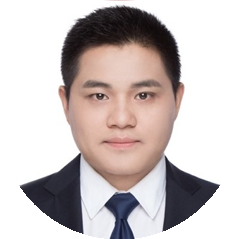
Sara Youssef
Conference Coordinator
[email protected]
(+20) 3 5763827 | (+20) 3 5763828
(+20)1000028021
Subscribe to our newsletter
The 2nd Edition of Climate Change and Environmental Sustainability International scientific conference has taken place on the 5th of October 2022, online/ virtually. The first edition of the International Conference on Climate Change and Environmental Sustainability (CCES) in 2021 discussed the effects of greenhouse gases on Earth’s temperature and global warming. This year, the conference’s second edition has taken these previously-discussed pressing issues forward, tackled new threats that has become clearer today, presenting state-of-the-art solutions and steps forward in the process.
IEREK is an international company located in Egypt and Germany, with a name that stands for International Experts of Research Enrichment and Knowledge Exchange, reflecting its mission to create opportunities for knowledge propagation in various fields, foster cultural exchange, and contribute to the development of our society. It does so through a number of activities in publishing, international conference organization (15 – 18 annually), collaborations with world renowned institutions and more.
This edition of the conference aligns with its vision of tackling major issues facing the world today in an effort to advance research and work to foster a cultural and knowledge exchange necessary for tackling them. For the second consecutive year, CCES 2022 is organized in collaboration with Chongqing University in China, chaired by Prof. Baojie He, who is a professor at the School of Architecture and Urban Planning, Chongqing University, China, for the second consecutive year after its success in 2021 with 100+ attending participants online and 420 registrations. Furthermore, this edition had received the support and guidance of Dr. Gloria Pignatta (University of New South Wales, Australia), Prof. Linchuan Yang (Southwest Jiaotong University, China), and Prof. Zhaouwu Yu (Fudan University, China).
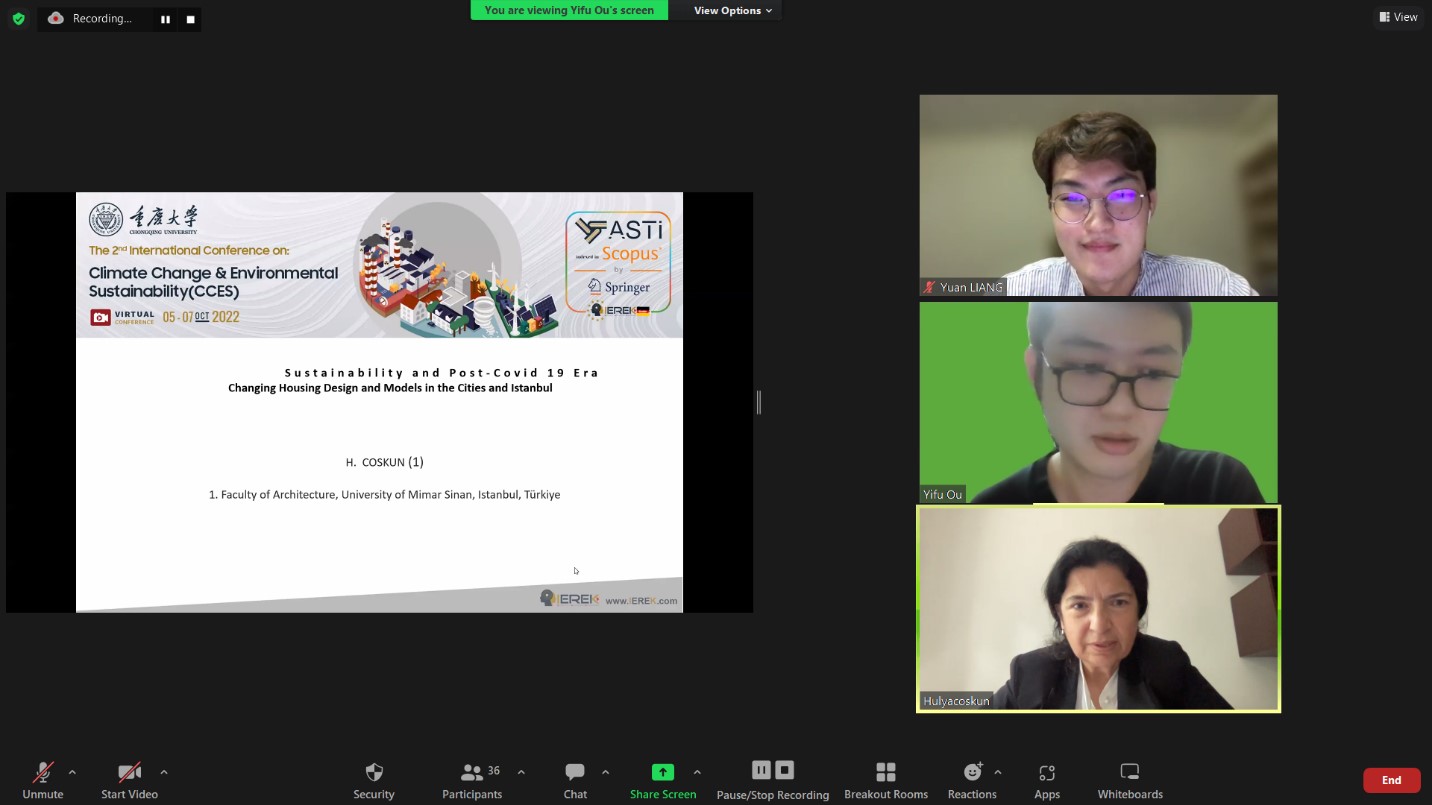
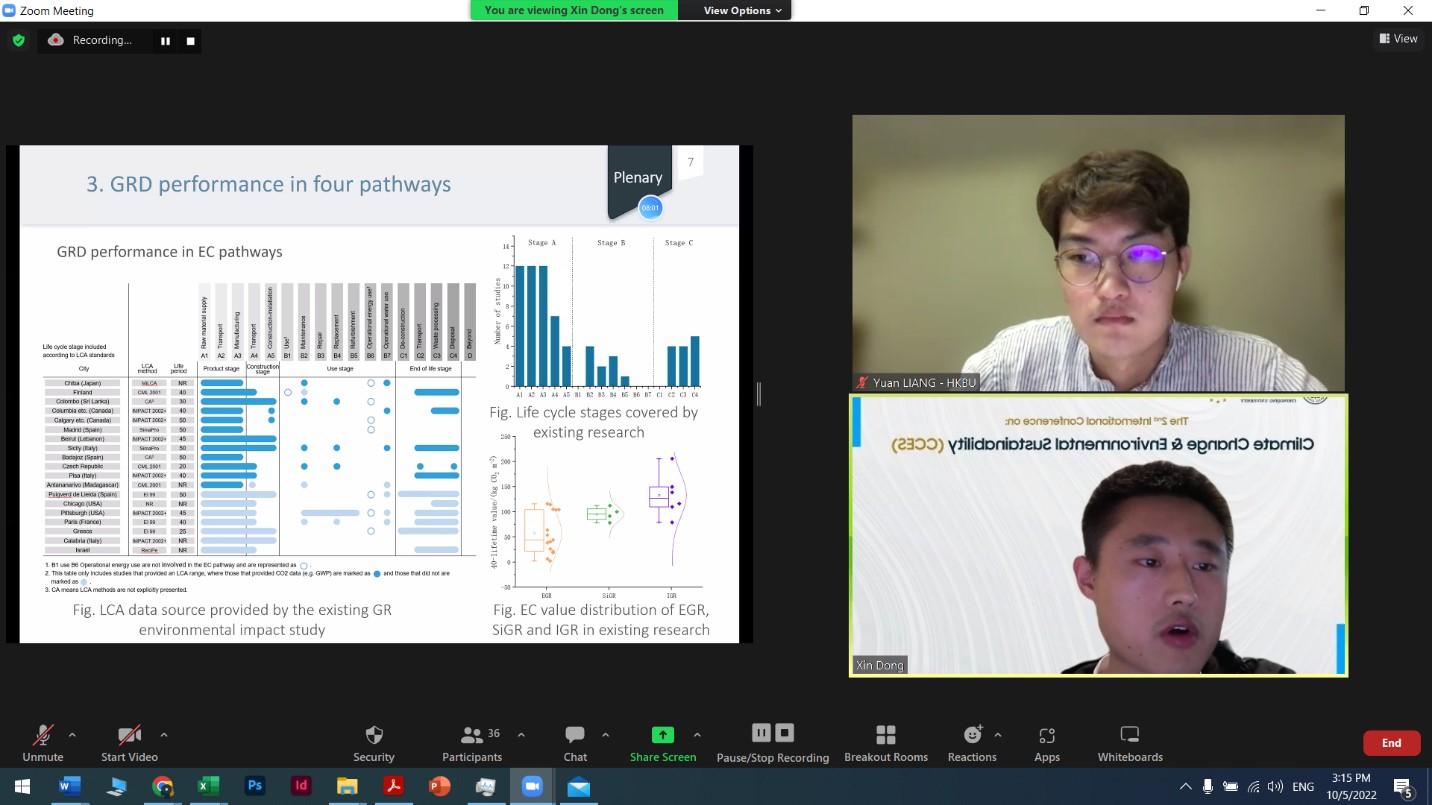
This year’s edition has received submissions from 60 different countries around the world, 290+ registrations and approximately 90 abstract submissions from the following countries: Albania, Australia, Bangladesh, Benin, Botswana, Cameroon, Canada, Cape Verde, China, Colombia, Dominican Republic, East Timor, Egypt, Ethiopia, Germany, Ghana, Haiti, Hong Kong S.A.R., India, Indonesia, Iran, Italy, Japan, Jordan, Kenya, Malawi, Malaysia, Mexico, Mali, Morocco, Mozambique, Nepal, Nigeria, Pakistan, Papua new Guinea, Peru, Philippines, Russia, Singapore, Slovakia, Slovenia, Somalia, South Africa, Sudan, Tanzania, Thailand, Tunisia, Turkey, Uganda, United Arab Emirates, United Kingdom, United States, Vietnam, and Zimbabwe.

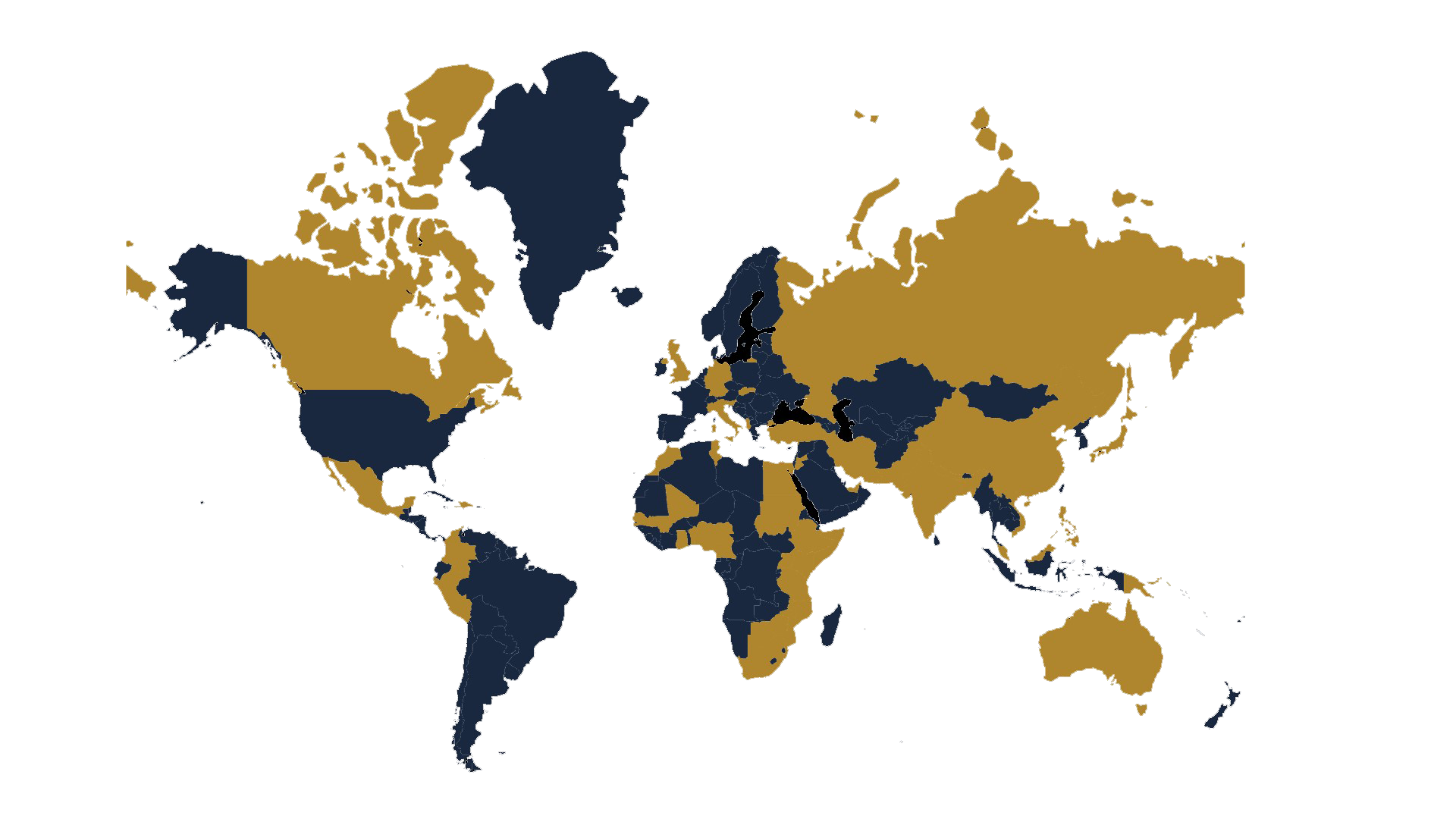
The conference also welcomed world-renowned experts in the field such as Prof.Dr.E.Didem Evci Kiraz| from the Faculty Of Medicine Department Of Internal Medical Sciences, Department Of Public Health, Adnan Menderes University Aydin, Turkey, with a speech covering “Climate Determinants of Health”, followed by Dr Rongrong Cheacharoen’s, who is a Research Group Leader at Metallurgy and Materials Science Research Institute of Chulalongkorn University, Thailand, on “Energy conversion-storage devices towards carbon neutrality”. The last keynote of the conference, Dr. Joni Jupesta from the Research Institute of Innovative Technology for the Earth (RITE) and a Lead author IPCC 6th AR, Indonesia, with a Speech title on "The role of Carbon Capture, Utilization and Storage (CCUS) in the industry".
The outcomes/ submissions of this conference will be published in the IEREK Interdisciplinary book series on Advances in Science, Technology and Innovation (ASTI) published by Springer Nature and indexed fully in Scopus. This 2nd edition of the proceedings book will be following in the footsteps of the proceedings (the 1st Edition) of the very first edition available at https://link.springer.com/book/9783031120145.
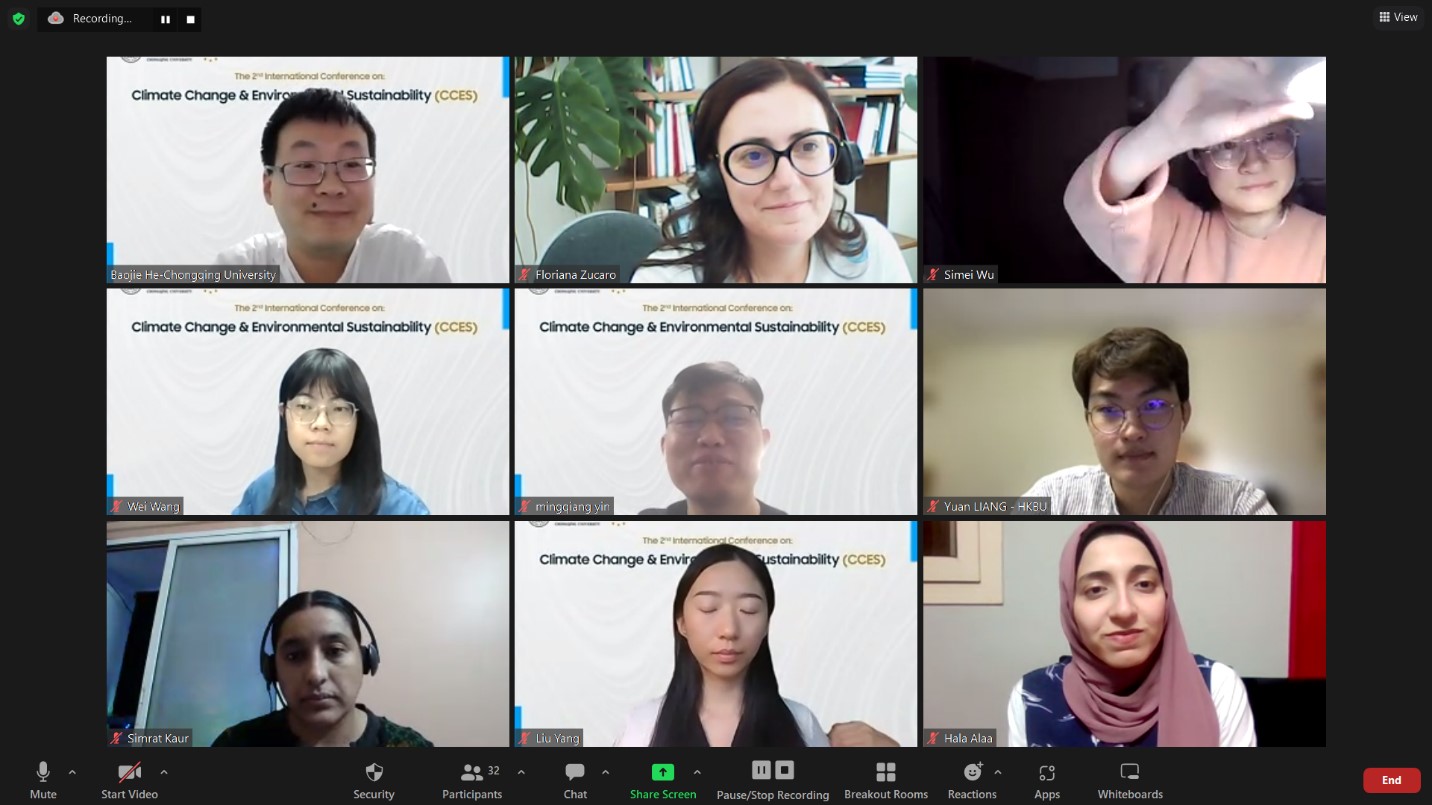
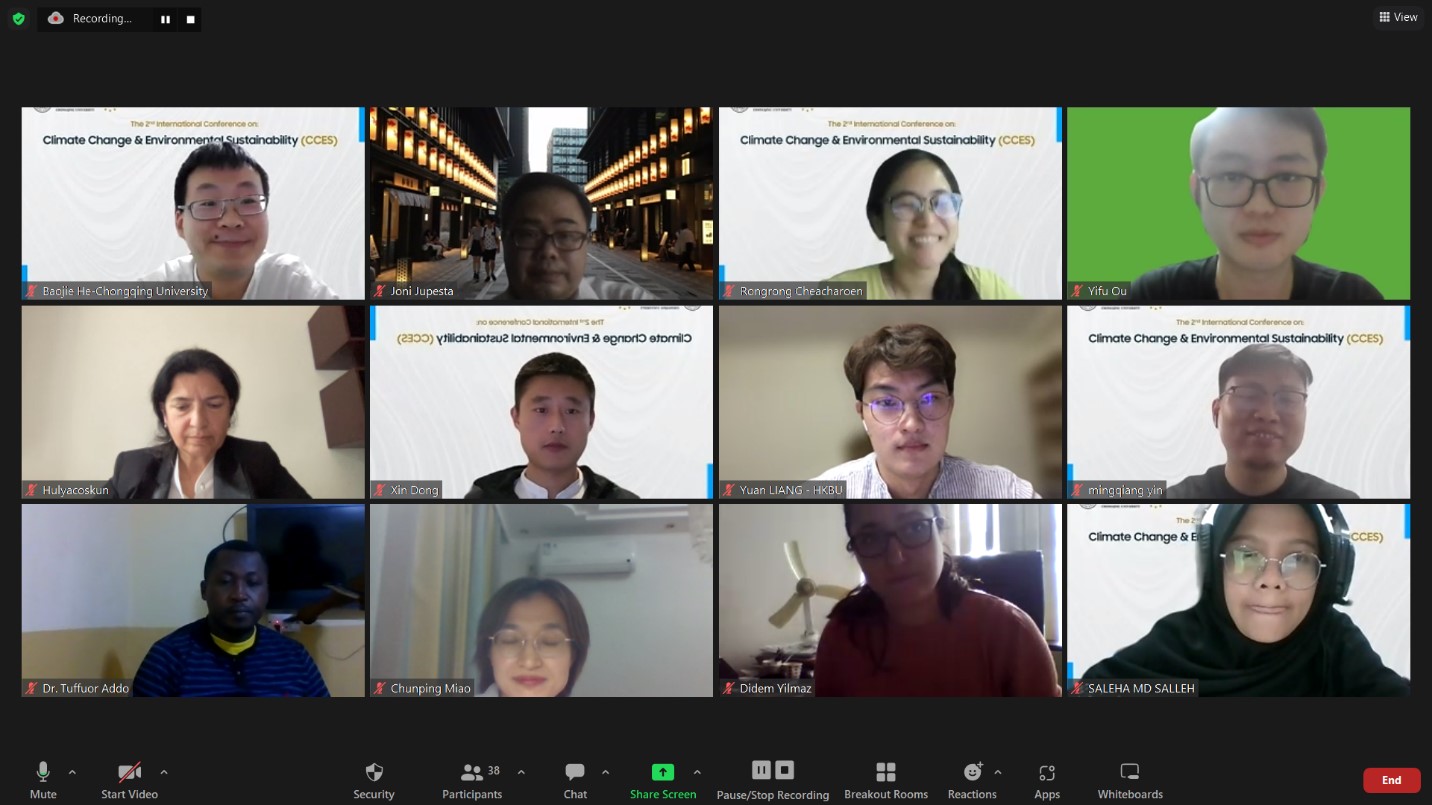
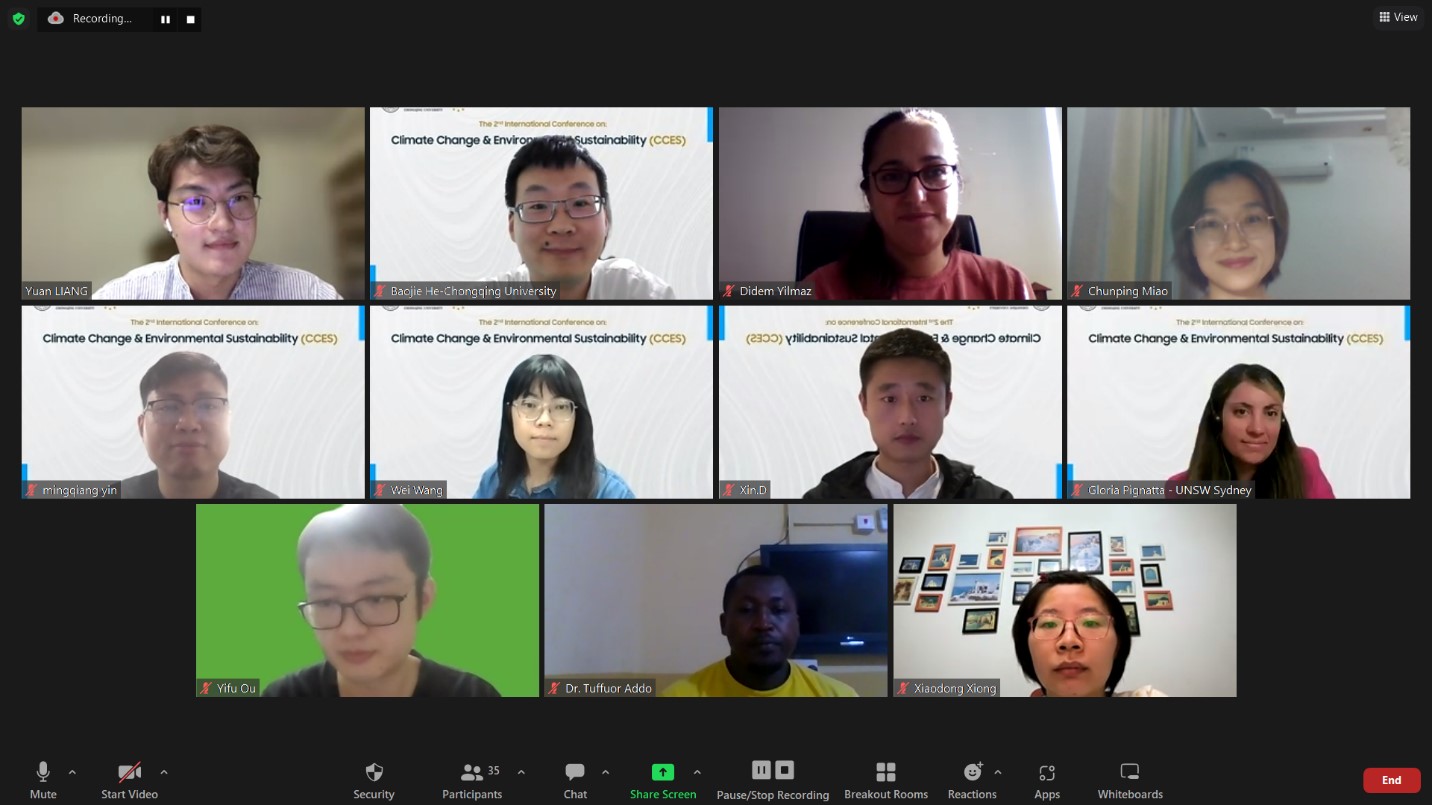
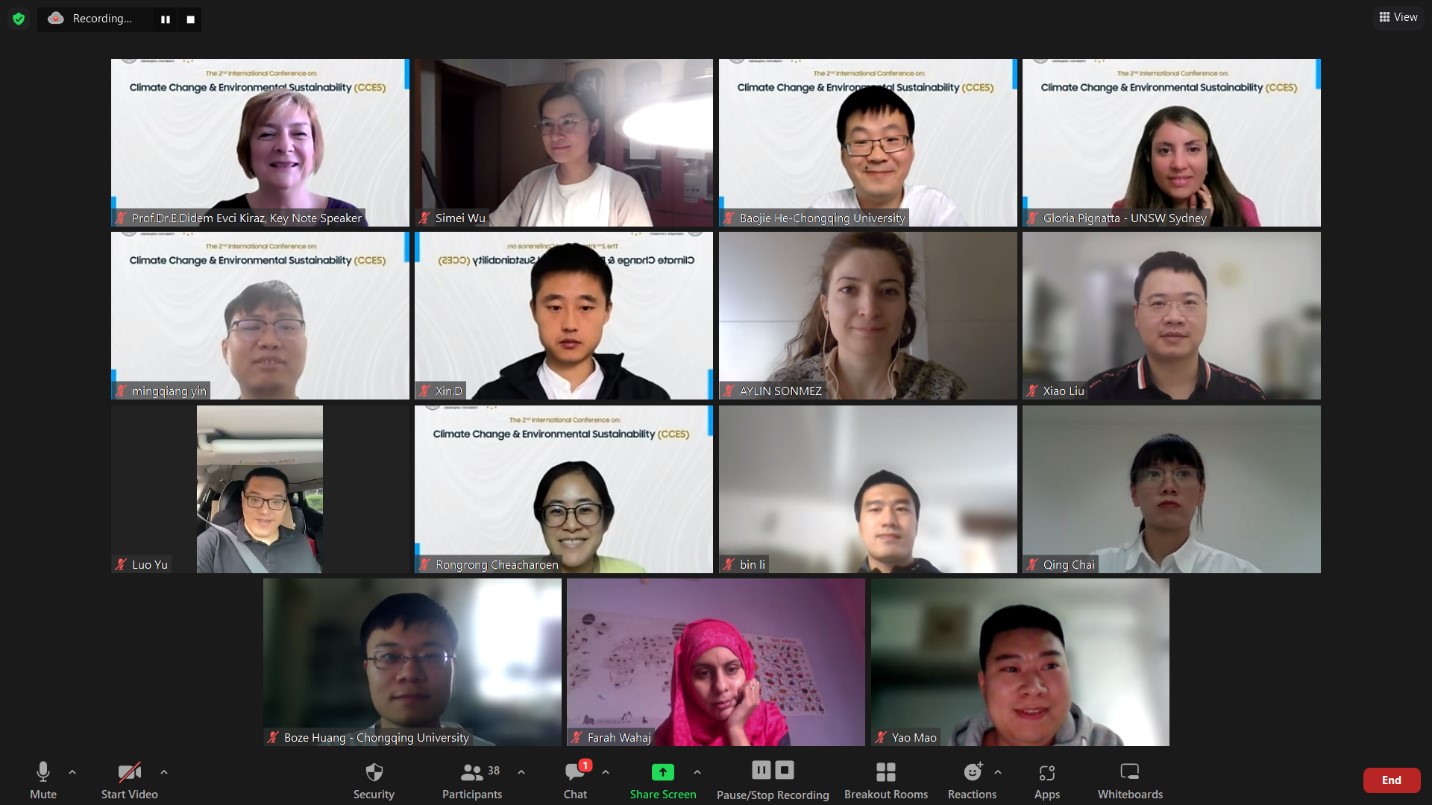
Earth has a very complex system where everything is connected. Like the butterfly effect, the tiniest wind in the East could cause a storm in the West. This applies to various weather conditions, tectonic movements, or other changes that happen to the surface of our beloved planet or its subterranean layers. Due to recent earthquakes in different parts of the world, volcanoes, and hotter temperatures, Climate change is given more attention day by day. The future generations will suffer the consequences of today’s problems.
Briefly, climate change is any change in the temperature or water levels that affects Earth for a long period of time. Humans today are experiencing rapid and unexpected changes in temperature where we witness hotter weather and sudden severe storms. However, the impacts of climate change do not stop at hotter temperatures. The rising temperatures that result from the burning of fossil fuels cause the melting of ice glaciers and the increase of water levels. On the other hand, drought in other regions causes changes in the subterranean layers of Earth due to the absorption of water from these layers. According to an article by NASA, these changes in the water levels are one possible reason behind sudden earthquakes due to the changes in the tectonic movements of Earth layers.
Rising oceans threaten the flooding of coastal cities like Alexandria, Miami, and Tokyo, which will result in the sudden and unplanned displacement of people. This affects the physical and mental health of human beings, causes the loss of crops and shortage of food supply, and disturbs the ecological system due to the loss of certain animal or plant species.
The first edition of the International Conference on Climate Change and Environmental Sustainability (CCES) in 2021 discussed the effects of greenhouse gases on Earth’s temperature and global warming. This year, the conference’s second edition will take these previously-discussed pressing issues forward as well as tackle the new threats that arise every day.
The conference is a chance for scientists and researchers from around the globe to excavate solutions for the new threats as earthquakes and volcanic eruptions which develop due to climate changes and try to figure out the reasons behind them. IEREK welcomes participants with various scientific backgrounds to gather and find solutions to save our planet Earth.
1-1 Greenhouse gas emission and measurement
1-2 Climate-related disasters and reduction
1-3 Risks and vulnerabilities assessment and visualization
1-4 Impacts of climate change on health and well-being
1-5 Ecosystem services and carbon sequestration
1-6 Sustainable transport and climate change mitigation and adaptation
1-7 Sustainable building and construction
1-8 Industry decarbonization and economic growth
1-9 Renewable and clean energy potential and implementation
1-10 Environmental, economic, and social benefits of climate change mitigation
2-1 Climate change and regional economic development
2-2 Territorial spatial planning and carbon neutrality
2-3 Urban overheating mitigation and adaptation
2-4 Water sensitive urban design
2-5 Smart development for urban habitats
2-6 Sustainable land use and planning
2-7 Low-carbon cities and communities
2-8 Wind sensitive urban planning and design
2-9 Nature-based solutions
2-10 Urban Morphology and environmental performance
2-11 Innovative technologies, models, methods, and tools for spatial planning
3-1 Climate-related impacts on the built environment
3-2 Health and wellbeing of occupants
3-3 Demands on energy, materials, and water
3-4 Assessment methods, systems, and tools
3-5 Sustainable energy, materials, and water systems
3-6 Energy efficiency design technologies and appliances
3-7 Smart technology and sustainable operation
3-8 Uptake and integration of clean energy
3-9 Innovative materials for carbon reduction and environmental regulation
3-10 Building demolition and material recycling and reusing
3-11 Sustainable building retrofitting and assessment
4-1 Targets, pathways, and roadmaps towards carbon neutrality
4-2 Pathways for climate resilience and future sustainability
4-3 Challenges, opportunities, and solutions for climate resilience
4-4 Climate change governance coalitions (networks) development and challenges
4-5 Co-benefits and synergies between adaptation and mitigation measures
4-6 Conflicts and trade-offs between adaptation and mitigation measures
4-7 Mapping, accounting, and trading carbon emissions
4-8 Governance models, policies, regulations, and programs
4-9 Financing urban climate change mitigation
4-10 Education, policy, and advocacy of climate change mitigation and adaptation
4-11 COVID-19 and alike crisis impacts and lessons
All accepted submissions to the conference, after a rigorous double-blinded peer-review process by the respective and a highly-extinguished Editorial Board, will be published in one of the following:
 Advances in Science, Technology and Innovation (ASTI), an IEREK Interdisciplinary book series published by Springer Nature. (Scopus indexed)
Advances in Science, Technology and Innovation (ASTI), an IEREK Interdisciplinary book series published by Springer Nature. (Scopus indexed) About ASTI
Advances in Science, Technology & Innovation (ASTI) is a series of peer-reviewed books based on important emerging research that redefines the current disciplinary boundaries in science, technology and innovation (STI) in order to develop integrated concepts for sustainable development. It not only discusses the progress made towards securing more resources, allocating smarter solutions, and rebalancing the relationship between nature and people, but also provides in-depth insights from comprehensive research that addresses the 17 sustainable development goals (SDGs) as set out by the UN for 2030.
The series draws on the best research papers from various IEREK and other international conferences to promote the creation and development of viable solutions for a sustainable future and a positive societal transformation with the help of integrated and innovative science-based approaches. Including interdisciplinary contributions, it presents innovative approaches and highlights how they can best support both economic and sustainable development, through better use of data, more effective institutions, and global, local and individual action, for the welfare of all societies. The series particularly features conceptual and empirical contributions from various interrelated fields of science, technology and innovation, with an emphasis on digital transformation, that focus on providing practical solutions to ensure food, water and energy security to achieve the SDGs. It also presents new case studies offering concrete examples of how to resolve sustainable urbanization and environmental issues in different regions of the world. Read More.
The ASTI series is fully indexed in Scopus and any chapter/ paper published as part of this series will be seen on the Scopus database. Some titles have been successfully indexed or submitted for indexation in Web of Science (ISI).
 IEREK Press Journals, a multidisciplinary publisher that aims to cultivate and disseminate research.
IEREK Press Journals, a multidisciplinary publisher that aims to cultivate and disseminate research.
ESSD is a peer-reviewed, scholarly journal that aims to systematically develop the research-driven curiosity and evidence-based discourse of aspiring scholars that seek to contribute to the academic community. As the world is currently living in an age of information where sources are widely available on the Internet, we at ESSD seek to efficiently utilize the available information to help create robust and evidence-based knowledge. In the process, we offer researchers, in general, and young and aspiring ones in particular a quicker way to get their work published and gain exposure through online open access. We pride ourselves on getting submitted work to be published quickly, through the use of our worldwide pool of subject specialist peer reviewers. Find out more about ESSD International Journal here.

ARChive is an open-access journal that publishes conference proceedings on a wide range of topics relating to social sciences. Consequently, it accepts original research papers on a wide spectrum of subjects. ARChive is a journal published on behalf of researchers that perpetually make an effort to contribute to their fields and provide them with high visibility of research submitted. The series publishes, both, theoretical and experimental high-quality papers of current and perpetual interest. It serves to cultivate, propagate, and essentially archive academic research that has been authored and submitted for academic conferences.
Find out more about ARChive International Journal here.

Resourceedings is an open access journal that publishes conference proceedings. Conference proceedings compromise of different disciplines, ranging from Engineering including built environments, architecture, and sustainability. Disciplines also include Technology and Energy. Resourceedings is a journal that publishes research articles that shed light on different crucial issues in order to provide them with solutions and suggestions. The journal publishes articles submitted by researchers of interest in different fields.
Find out more about Resourceedings International Journal here.
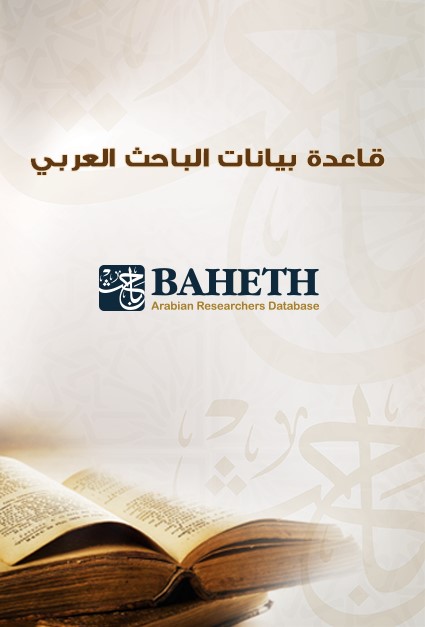
“BAHETH” in Architecture, Engineering, and Technology, is a peer-reviewed journal that publishes original academic research in the fields of Architecture, Engineering, and Technology. The journal welcomes research in the Arabic Language with an English Abstract. Papers submitted to this journal in Arabic must be presented in the English Language in the conference.
Find out more about BAHETH International Journal here.

Dr. Baojie is a Professor at the School of Architecture and Urban Planning, Chongqing University, China. Dr. He was ranked as one of the single-year 100,000 global scientists by Mendeley, 2020. Baojie has the strong academic capability with 57 peer-reviewed papers published in high-ranking journals and oral presentations in great conferences. Dr. Baojie’s outcomes have high impacts in energy and built environment and have been widely cited by peers, which enables Baojie to have seven highly cited/hot papers recognised by the world-known database of Web of Science and a high H-index (Scopus: 25; Google Scholar: 24). Baojie has been involved in several large research projects on energy and built environment in Australia in the name of Postdoc Research Fellow, Research Associate and Research Assistant. Baojie has been the Associate Editor, Leading Guest Editor, Editorial Board Member, Sessional Chair, Scientific Committee of a variety of reputable international journals and conferences.

Dr. Gloria Pignatta is a Scientia Lecturer (Assistant Professor) in the discipline of Architecture and Design and City Futures Research Centre (CFRC) Fellow (2021-2024) in the School of Built Environment - Faculty of Arts, Design and Architecture at UNSW Sydney (Australia). Her research focuses on building energy efficiency and sustainability in the built environment. Her practical and theoretical research in the field of urban development touches on the global problem of climate adaptation and mitigation, but also social challenges, such as energy inequality. Her research aims to improve the thermal-energy, environmental, and acoustic performance of buildings and cities to enhance their liveability through the development and the implementation of advanced passive solutions. She is a Civil Engineer with a Ph.D. in Energy Engineering from the University of Perugia, Italy. In 2017, she was a Postdoctoral Associate and Building and Construction expert at the Singapore-MIT Alliance for Research and Technology (SMART), Singapore. In 2016, she was a Postdoctoral Fellow at the Inter-University Research Center on Pollution and Environment “Mauro Felli" (CIRIAF), University of Perugia, Italy. Her research collaboration network touches more than 15 countries.

Since 2020 Dr. Joni Jupesta has been working as Senior Researcher in System Analysis Group at the Research Institute of Innovative Technology for the Earth (RITE) based in Kyoto, Japan. Previously he had worked as Senior Manager (2013-2020) at Sinar Mas Agribusiness and Food Corporation based in Jakarta/Pekan Baru, Indonesia. He did his Postdoctoral under JSPS-UNU Research Fellowship (2010-2013) at the United Nations University (UNU) based in Tokyo, Japan. An Indonesian citizen, Dr. Jupesta graduated his Ph.D. in Management Science and Technology from Tohoku University (2010) in Sendai, Japan, and MBA in International Management from Esslingen University of Applied Science (2006) in Esslingen, Germany. His work focuses on the climate change mitigation assessment towards net zero across sector: AFOLU, building, energy, industry, transport, and waste. Since 2022, Dr. Jupesta has been an Editor for Carbon Capture Science and Technology (Elsevier) and Data and Policy (Cambridge University Press) journals. He also served as a Lead Author (2018-2022) in the Intergovernmental Panel on Climate Change (IPCC) 6th Assessment Report on WG III Climate Change Mitigation. He has been frequently invited as guest lecturer on the climate change and sustainable development issues. During his 15 years career span in UN, academic, and industry, he already published more than 50 journals, edited books, book chapters, and international conference proceedings.
Important Note:
IEREK has an unyielding policy regarding plagiarism. We believe that copying/taking the ideas and work of other Authors without permission and credit is fraudulent. The Reviewing committee and IEREK employees have the authority to reject a paper during its reviewing process, on the basis of the paper being subjected to either minor or major plagiarism.
Authors must refer to, and abide by, the following instructions in submitting their abstracts/ papers:
Step 1: Abstract Submission Process
To download the Abstract Writing Template, Click Here
All Chapters will be screened for similarity using iThenticate; a Turnitin Plagiarism detection software, used for academic publishers. Springer Similarity guidelines are as follows:
To download Paper Writing Template, Click Here
Once Preliminary approval for presentation at the conference and/or consideration for publication is granted, authors will be expected to complete payment in reference to the Conference Fees before the peer review process can begin.
Note:
In preliminary evaluation, the research paper will be inspected against its readability, originality, structure, and relevance to the conference theme/ topics. If the paper gets acceptance by one reviewer, a preliminary acceptance notification will be sent to the author in addition to a proforma invoice requesting payment. As soon as payment is confirmed and done successfully, corresponding official documents can be issued from our end such as:
Only after payment is confirmed,
- and the full paper submission deadline reached, a submitted full-length paper is assigned to an Editor from the Editorial Board, in alignment with IEREK’s and the respective publisher’s revision SOP (double-blind process).
- Each paper is evaluated by a minimum of two reviewers, after which a final decision by the responsible Editor is made. There is no maximum to the number of times a paper can be reviewed, depending on the quality of the submission.
- Once a decision is made by the Editors, IEREK Editors will communicate one of the following three final decisions:
- If modifications are in order, authors will be sent the relevant instructions and a deadline will be set. Missed deadlines may result in complete exclusion/ rejection from the final publication.
- A back and forth process: modifications will be sent back to the responsible Editor/ Series Editor and another round of evaluation conducted where needed. Authors should regularly check their emails (Junk/ Spam folders).
To help the organizers plan for inter-disciplinary dialogue, participants are requested to choose from the conference themes/topics upon registration.
They must also refer to, and abide by, the following instructions in registering and submitting their abstracts/ papers:
1. Attend/ Present Virtually and Publish
Organized from the comfort of your own home, the conference offers a virtual attendance option for your convenience. That said, participants will have a chance to present their abstract/research, online, and have their work considered for publication in the proceedings.
Virtual presenters are required to submit an abstract and full paper following the "Author's instructions" below and before the deadline (see Important Dates) and confirm the participation for inclusion in the program upon payment of the registration fee (see Conference Fees).
Authors who cannot, for any reason, attend/ present their own work are welcome to nominate and share the contacts of a substitute to present on their behalf.
2. Register to publish in the proceedings without presenting/ attending
Your contribution/ submission can be considered for publication with IEREK Press or in the Advances in Science, Technology & Innovation Book Series by Springer (indexed in Scopus) even if you are not attending the conference. In this case, the accepted work will not be included in the final conference program and the fee will cover the cost of editorial handling and peer-review evaluation of your paper (See Author's instructions, Publishing opportunities & Conference Fees)
3. Non-presenting participant
Non-presenting participants may also wish to attend the conference as Audience Members or Co-authors contributing to an already submitted abstract/ paper. To confirm your attendance, please register and proceed to payment (see Conference Fees).

Prof.Dr.E.Didem Evci Kiraz| Faculty Of Medicine Department Of Internal Medical Sciences, Department Of Public Health, Adnan Menderes University Aydin, Türkiye.
She graduated from Ege University Faculty of Medicine in 1989. She worked as a manager and coordinator at the Ministry of Health. She established the Tourism Health Branch in 1999. She has M.Sc. and Ph.D. at Hacettepe University on Public Health. She studied Environmental Protection, Ecology and Biodiversity in England with a scholarship from the Ministry of Health. She was the National Network Coordinator of the "Healthy Cities Project" of WHO. She is a member of the Advisory Board of the WHO and Healthy Cities Association of Türkiye. She carried out the projects of the EC- Health Impact Assessment, TUBITAK-Provincial Innovation Platform, GEKA-Innovation Center. She is still working as the Head of the Department of Interdisciplinary Environmental Health at Aydın Adnan Menderes University, the director of the "City Health Promotion" and the "Roma People”application and research Centers, and a faculty member of the Faculty of Medicine, Department of Public Health. She was the Founding Dean of the Faculty of Nursing at the same university between 2016-2019. She carries out studies in the fields of "Climate Change and Health Effects" with the Ministry of Health and the Ministry of Environment and Urbanization, "Migration and Health Services" with the Ministry of Health, and "Cumulative Health Impact-Geothermals" with the Ministry of Environment and Urbanization. She is working as a "Health Sector Expert" in the UNDP Strengthening Action for Adaptation to Climate Change in Türkiye Project. She represented Türkiye at the World Climate Summit (COP26) on 3 November 2021.
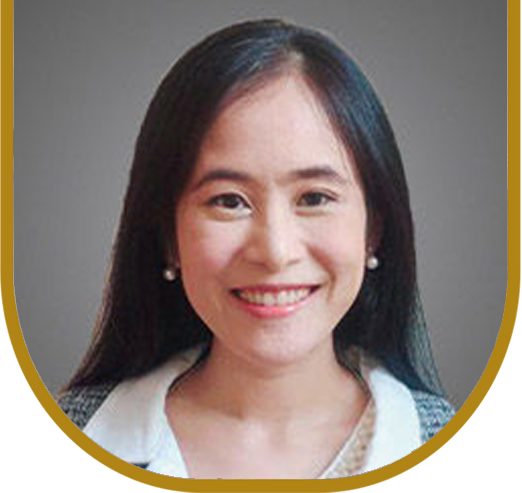
Dr. Rongrong Cheacharoen is a research group leader at the Metallurgy and Materials Science Research Institute (MMRI) of Chulalongkorn University, Bangkok, Thailand. She received her Bachelor of Science degree (summa cum laude) in Materials Science and Engineering, with a double major in Physics from Northwestern University, USA. Afterwards, she continued her further studies and received her Master of Science and Doctor of Philosophy degrees in Materials Science and Engineering from Stanford University, USA. In the same year, she came back to Thailand and started her Renewable-Rechargeable-Reliability laboratory at MMRI. Her research focuses on investigating operating mechanisms and engineering materials as well as device design to improve the stability of energy devices. She was a part of the international consensus on stability testing of perovskite solar cells (Nature Energy 5 (1), 35-49) and published many papers on stability of halide perovskites. While on batteries, she is actively involved in minimizing degradation of low-cost rechargeable zinc-based batteries. Her ultimate goal is realizing effective and stable integration of energy conversion-storage device towards carbon neutrality. She she was recently selected as one of 25 outstanding young scientists and winner of the Green Talents Competition 2021 of the German Federal Ministry of Education and Research (BMBF).

Since 2020 Dr. Joni Jupesta has been working as Senior Researcher in System Analysis Group at the Research Institute of Innovative Technology for the Earth (RITE) based in Kyoto, Japan. Previously he had worked as Senior Manager (2013-2020) at Sinar Mas Agribusiness and Food Corporation based in Jakarta/Pekan Baru, Indonesia. He did his Postdoctoral under JSPS-UNU Research Fellowship (2010-2013) at the United Nations University (UNU) based in Tokyo, Japan. An Indonesian citizen, Dr. Jupesta graduated his Ph.D. in Management Science and Technology from Tohoku University (2010) in Sendai, Japan, and MBA in International Management from Esslingen University of Applied Science (2006) in Esslingen, Germany. His work focuses on the climate change mitigation assessment towards net zero across sector: AFOLU, building, energy, industry, transport, and waste. Since 2022, Dr. Jupesta has been an Editor for Carbon Capture Science and Technology (Elsevier) and Data and Policy (Cambridge University Press) journals. He also served as a Lead Author (2018-2022) in the Intergovernmental Panel on Climate Change (IPCC) 6th Assessment Report on WG III Climate Change Mitigation. He has been frequently invited as guest lecturer on the climate change and sustainable development issues. During his 15 years career span in UN, academic, and industry, he already published more than 50 journals, edited books, book chapters, and international conference proceedings.
| Title | Date |
|---|---|
| Abstract Submissions Deadline (Extended) | 30 Jun 2022 |
| Last Notification for Abstract Acceptance | 10 Jul 2022 |
| Full Paper Submission Deadline (Extended) | 20 Aug 2022 |
| Last Notification for Full-Paper Acceptance | 30 Aug 2022 |
| Regular Payment Deadline | 05 Aug 2022 |
| Late Payment Deadline | 05 Sep 2022 |
| Letter of Final Acceptance | 05 Aug 2022 |
| Conference Program | 05 Sep 2022 |
| Conference Launch | 05 Oct 2022 |
Attending a conference dramatically enhances both your professional and personal development. They help you sharpen the saw, meet and converse with industry experts, expand your resources and grow your professional network. IEREK Conference will help you:
| Student | Academic | Professional | Deadline | |
| *ID must be shown | *Affiliation must be provided | *Affiliation must be provided | ||
| Author Participation (Consideration in the ASTI Book by Springer) | ||||
| Regular Payment | 200 € | 250 € | 250 € | 05 Aug 2022 |
| Late Payment | 300 € | 350 € | 350 € | 04 Sep 2022 |
| Author Participation (Consideration in the IEREK Press Journal) | ||||
| Regular Payment | 100 € | 150 € | 150 € | 05 Aug 2022 |
| Late Payment | 200 € | 250 € | 250 € | 04 Sep 2022 |
| Co-author/ Audience | ||||
| Regular Payment | 50 € | 50 € | 50 € | 05 Aug 2022 |
Registration Guidelines:
| Presentation Only | ||
| Online | 100 € | 05 Aug 2022 |
| Publish Only | ||
| Author (ASTI) | 250 € | 05 Aug 2022 |
| Author (IEREK Press) | 150 € | 05 Aug 2022 |
| Additional Conference Kit (Excluding Delivery) *Contact us for a quotation on shipping fees. | 100 € |
| If applicable: Paper Extension fees for publishing ASTI (Springer) upon selection | 200 € |
Loyalty Membership Discounts
The more you attend, the more you're rewarded!
IEREK offers its loyal participants with the following discounts depending on his/her attendance:
|
Attendance |
Second |
Third |
Fourth |
Fifth |
|
Discount |
5% |
10% |
15% |
20% |
*The aforementioned discounts are only applicable during Regular and Late Payment times. For more information, please refer to 'Important Dates'.
Payment Terms and Guidelines:
The first edition of the International Conference on “Climate Change and Environmental Sustainability” was held in collaboration with the Chongqing University, China, and took place virtually from the 9th to the 11th of October, due to the travel restrictions caused by the pandemic.
This Conference is a step towards empowering decision-makers and energy stakeholders to join forces and proactively address the challenges of climate change so that actual progress can be achieved. By bringing together researchers who work on topics relevant to climate change and environmental sustainability to share their latest accomplishments and research findings, voices can be amplified and actions towards a more resilient, liveable, sustainable future taken. This conference serves as an important resource to inform people and provide them with a comprehensive understanding of the possible opportunities for environmental sustainability to address climate change.
Among the main topics discussed in the Conference:
1- Climate Change Mitigation and Adaptation
2- Sustainable Urban-Rural Planning and Design
3- Decarbonization of Built Environment
4- Climate-related Governance and Challenges
Day 1:
Welcoming Session:
The “Opening Ceremony” started with the online registration and welcoming speeches from the Conference Chair.
A Presentation about IEREK introducing the company and its activities to the audience followed.
Following IEREK’s introduction, short welcoming speeches were given by the conference chair Research. Prof. Baojie He, School of Architecture and Urban Planning, Chongqing University, China & Green Talents Alumni of Federal Ministry of Education and Research, Germany, the conference co-chair Prof. Ayyoob Sharifi, Professor at Hiroshima University Graduate School of Humanities & Social Sciences, Japan; Lead Author of IPCC 6th & Associate Editor of Urban Climate Journal, Elsevier, the conference co-chair, Research. Prof. Chi Feng, School of Architecture and Urban Planning, Chongqing University, China, and the conference co-chair Prof. Jun Yang, Jangho Architecture Collage, Northeastern University, China.


Plenary session:
A “Plenary Session” followed introducing the first keynote speaker, Professor Mattheos Santamouris, Anita Lawrence Professor of High-Performance Architecture in the University of South Wales, Australia & Co-Editor-in-Chief of Energy and Buildings Journal of Elsevier, whose speech was entitled: “Recent Advances in Urban Mitigation Technologies.”
Following the first keynote speaker was the second Keynote Speaker Marta Olazabal, Research Fellow at the Basque Centre for Climate Change (BC3) and Head of the Adaptation Research Group, with a speech entitled: “Is urban climate adaptation in a deadlock?”
After the keynote speech was the First Session of the conference entitled “Climate Change Mitigation and Adaptation.” The session was moderated by Dr. Huimin Liu, Institute of Space and Earth Information Science, The Chinese University of Hong Kong, China, and Dr. Wanlu Ouyang, School of Architecture, The Chinese University of Hong Kong, China.

Day 2:
The second day of the conference started with the remaining keynote speaker, Deo Prasad, Scientia Professor in the University of New South Wales, Australia & Fellow of the Australian Academy of Technology and Engineering (FTSE) & the Royal Australian Institute of Architects (FAIA), with a speech entitled: “Delivering Net Zero Carbon Buildings.”

After the keynote speech, the Second Session, entitled: “Climate Change Mitigation and Adaptation in Urban Planning & Design,” which is moderated by Dr. Huimin Liu, Institute of Space and Earth Information Science, The Chinese University of Hong Kong, China, Dr. Wanlu Ouyang, School of Architecture, The Chinese University of Hong Kong, China, and Dr. Chuan Shang, Associate professor Chongqing university, China took place.
The Second Session discussed eleven presentations before the “Discussion & Conclusions Session” given by the conference chair Research. Prof. Baojie He, School of Architecture and Urban Planning, Chongqing University, China & Green Talents Alumni of Federal Ministry of Education and Research, Germany.

Day 3:
The Third day of the conference started with the speech of the keynote speaker, Professor Joni Jupesta, Senior Researcher in the Research Institute of Innovative Technology for the Earth (RITE) & Lead Author IPCC 6th AR, Indonesia, entitled: “CD-R Technology and Natural based pathways in the climate Change Policy in Asia.”

After the keynote speech, the Third Session followed and was moderated by Dr. Xuan Ma, Department of Architecture, Chang’an University, China. The Third Session discussed Six presentations before the Virtual Group Photo.

Afterwards, the Fourth Session of the conference took place and was moderated by Dr. Gloria Pignatta, School of the Built Environment, Faculty of Arts, Design & Architecture (FADA), University of South Wales, Australia, and Professor Federica Rosso, Department of civil, construction and environmental engineering (DICEA), Sapienza University of Rome, Italy. The fourth and last session of the conference discussed the remaining nine presentations.

A Discussion and Questions and Answers session followed, and the Conference was concluded by a Panel session where final remarks and feedback were discussed.

Delegates in any event who cancel their registration due to special circumstances will receive refunds according to the following:
| Cancellation Policy | Up to 60 days before the event | 59 days before the event |
| Penalty | 20% | 100% |
A refund is not possible if
- An acceptance letter has been issued (Authors only)
- The proceedings of the event have been published (Authors only)
- A submitted manuscript is rejected by the editorial board after going through peer review.






















School of Architecture and Urban Planning, Chongqing University, China.



Sara Youssef
Conference Coordinator
[email protected]
(+20) 3 5763827 | (+20) 3 5763828
(+20)1000028021
Subscribe to our newsletter
Join IEREK community